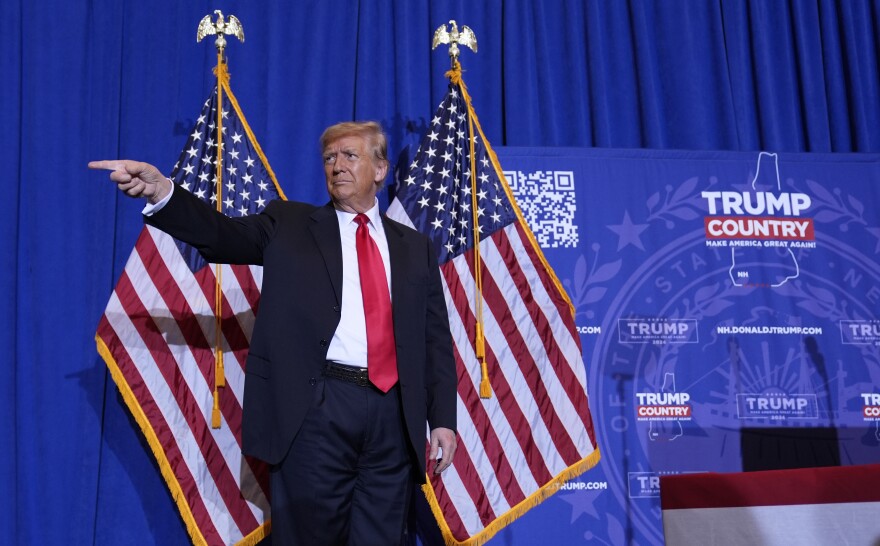Updated January 17, 2024 at 3:43 PM ET
A Maine court has sent back a decision to remove Donald Trump from the state's presidential primary ballot — a decision based on a reading of a constitutional provision that bars insurrectionists from holding public office.
In a ruling Wednesday, Kennebec County Superior Court Justice Michaela Murphy ordered the secretary of state to issue a new decision on Trump once the U.S. Supreme Court weighs in on a related case.
Trump had appealed the ruling by the Democratic secretary of state, Shenna Bellows, urging Maine courts to overturn her decision. Bellows had suspended the effect of her ruling, giving state courts the chance to hear an appeal.
The matter is already at the nation's highest court. Prior to the decision in Maine, the Colorado Supreme Court barred Trump from that state's primary ballot, citing the same provision of the 14th Amendment. Trump appealed that Colorado ruling to the U.S. Supreme Court, which has agreed to hear the historic arguments on Feb. 8.
In her ruling, Justice Murphy stayed Bellows' decision and "remands this matter to the Secretary for further proceedings as necessary in light of the United States Supreme Court's forthcoming decision in Trump v. Anderson [the Colorado case]."
Murphy ordered that Bellows' new ruling, "modifying, withdrawing, or confirming" her initial ruling, come no later than 30 days after the Supreme Court's decision.
The issue further thrusts the Supreme Court justices into contentious election debates, as they may decide Trump's claim of presidential immunity from criminal charges.
Section 3 of the 14th Amendment was enacted after the Civil War, and designed to bar former Confederates from occupying public office. The provision says candidates are disallowed if they've "engaged in insurrection." Both the Colorado justices and Maine Secretary Bellows said Trump's efforts to overturn the 2020 election, which ended with an attack on the U.S. Capitol, fit that description.
Trump has condemned the decisions as partisan election interference.
Copyright 2024 NPR. To see more, visit https://www.npr.org.


